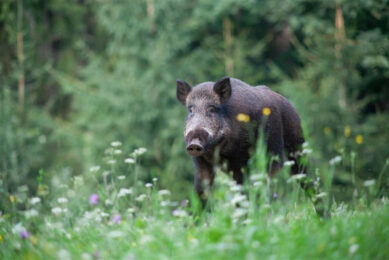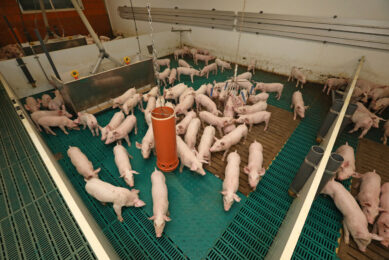Why reducing antibiotics has been good

Some Western European countries have made some serious steps in the reduction of antibiotics through monitoring and penalty programmes. It is a development which yields both praise and rejection. What exactly did it bring?
It happened more than once – enthusiastic advocates of antibiotics explaining to me how the ‘Danish example’ proved to them that reducing antibiotics in animal husbandry is a bad idea. This example refers to a situation in the late 1990s, when Denmark, ahead of the rest of Europe, banned the usage of antibiotic growth promoters. David Burch in his column also refers to what happened next – therapeutic usage shot up over 60%.
No reaction to AGP reduction is also possible
But there is also another example. In banning antibiotic growth promoters, the rest of Europe followed Denmark in 2006. Interestingly, in the Netherlands, things stayed relatively calm with only incidental problems. The UK also noticed no significant results. This puts the Danish experience in a different perspective. Was the Danish increase in therapeutic usage related to banning AGPs? Or had the Danes simply been unlucky? Maybe it had been a case of bad timing? Or did they want too much too fast?
Debate around antibiotic resistance
It’s just another controversy in the entire debate around antibiotic resistance. To boil that discussion down to one paragraph: what is known is that the use of antibiotics can lead to the creation of resistant bacteria, which eventually might backfire in animal husbandry or even affect human health.
The European Union (EU) took action, saying: better ban them as much as we can. On the basis of much the same premise, many organisations in the US said for a long time: hmm, there’s a lot of ‘can’ and ‘might’ in there – only sound science will convince us.
The scientific debate should stay where it is – it’s an academic matter. Which view makes more sense I can’t tell.
Antibiotics reduction in Europe
This week, I gathered and analysed the programmes and progress to reduce therapeutic antibiotics usage in North West Europe. Denmark, the Netherlands, Belgium, Germany and France all have embarked on programmes to first monitor usage on a farm level and subsequently have the opportunity to warn those producers whose use is (far) above average. I’ll present an analysis of that in the upcoming issue of Pig Progress.
In the Netherlands, the reduction programme has had a remarkable side effect. Dr Hetty van Beers-Schreurs, director for the Netherlands Veterinary Medicines Authority, told me: “What happened in the field of animal health is a growth of awareness. Say ten years ago, when you’d talk to pork producers about on-farm hygiene, like for instance what they drag through their pig houses every day, many would be indifferent. Now that has changed. I can only be very positive about that.”
Pigs physically are just like humans
I think there is a good deal of truth in her words. In order to meet a growing demand for pork, over the years pig houses and pig numbers have grown. Pigs, however, are not machines – physically they work just like humans. They get born, live, eat, defecate, cough, feel bored, hear, play, run, sniff, walk, drink, move, die and sometimes infect each other. Oh well, the infecting aspect was not that much of a problem – antibiotics helped them through.
In this regard, I feel, for a long time, the pig industry was largely oblivious to the underlying shortcomings on their own farms. Ventilation problems? Unbalanced diets? Management imperfections? Violated or missing biosecurity protocols allowing more diseases in?
Reducing antibiotics takes away the veil
Further reducing antibiotics usage took away the veil that had comfortably covered pork production for a long time. Producers realised there are indeed many things that can be done better – and the growing awareness in the Netherlands proves that antibiotic usage can be a lot lower.
Advocates of using (growth promoting) antibiotics often claim it is a matter of responsibility and animal welfare to use them, as failing to supply these might cause disease.
I wonder, how would you call a situation in which animals stay healthy without the use of antibiotics?











